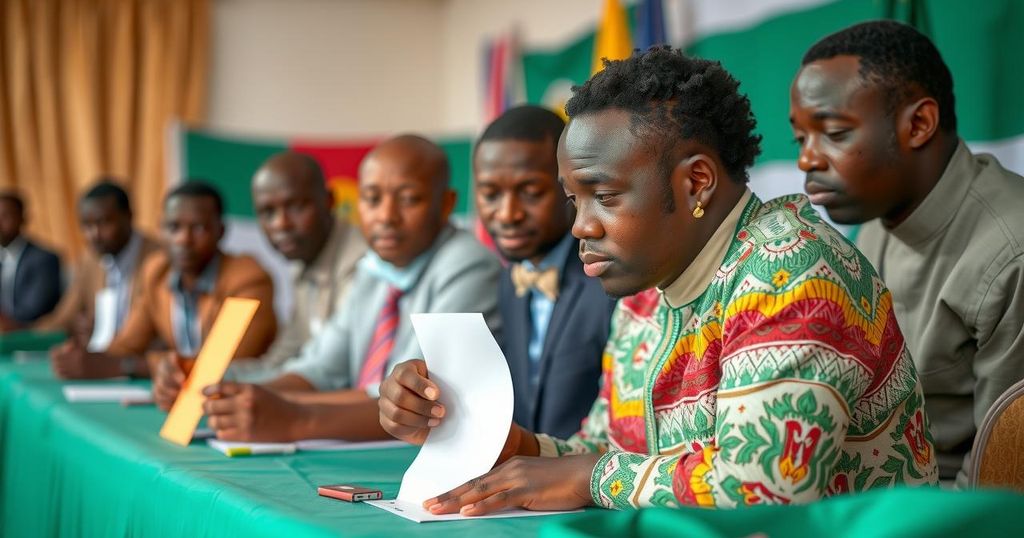Chad’s Controversial Parliamentary Elections Amid Opposition Boycott
Chad is conducting its first parliamentary election in 13 years, amidst an opposition boycott and allegations of predetermined outcomes. The government promotes the elections as a step towards democracy, despite low turnout and claims of electoral fraud. Citizens express mixed feelings about the election amidst regional instability and socioeconomic challenges.
Voting has commenced in Chad for the first parliamentary election in 13 years, a pivotal moment that the government has touted as essential for transitioning from military rule. This election will determine the composition of a new parliament, provincial assemblies, and local councils in a nation often recognized as one of the poorest globally. However, the opposition has advocated for a boycott, alleging that the elections are predetermined and fraudulent.
Turnout was notably low in the capital city, N’Djamena, with officials attributing the lack of voter enthusiasm to adverse weather conditions. The opposition parties have urged the populace, approximately eight million eligible voters, to refrain from participating in these elections, their stance creating a favorable environment for candidates supportive of President Mahamat Idriss Deby Itno. Deby, who ascended to power via military means in 2021, had his rule legitimized through a contentious presidential election earlier this year, which was also condemned by opposition leaders as being manipulated.
On the eve of the election, opposition leader Succes Masra from the Transformers party asserted that electoral results had already been manipulated, stating, “The fabricated results are already in the computers.” In contrast, some citizens like Patrice Lumumba Deoumoundou expressed hope for significant societal changes, emphasizing the need for increased job opportunities and greater justice. Additionally, as with past elections, military personnel, police officers, and nomads participated in early voting for logistical purposes.
Chad’s electoral authority claimed an unprecedented turnout among military and nomadic voters, citing figures of over 72% and 54% respectively. Election stations are under the scrutiny of approximately 100 foreign observers and political party representatives to ensure accountability and transparency, amid rising concerns over electoral fraud. Recently, claims emerged from the opposition Democratic Party of the Chadian People regarding the disappearance of over 1,000 ballots, intensifying calls for vigilance against electoral malpractice.
This election occurs in a context marked by instability, with ongoing threats from Boko Haram and accusations of Chadian involvement in the conflict in Sudan. The government insists that these elections symbolize the culmination of its long-sought transition toward democracy following the death of former President Idriss Deby, who ruled for three decades.
Chad has faced prolonged periods of military governance, most recently under President Deby, who took over following his father’s death. The current parliamentary elections are being framed by the government as a critical step towards reinstating democratic governance, amidst widespread public skepticism and a boycott called by opposition factions. This electoral process is further complicated by socioeconomic challenges, allegations of electoral fraud, and the implications of regional conflict.
Chad’s parliamentary election, the first in over a decade, is mired in controversy and low voter turnout, influenced heavily by a boycott from opposition parties. With serious allegations of electoral malpractice and significant public discontent over socioeconomic issues, the legitimacy of the elections is under scrutiny. The government positions this electoral process as a pivotal moment in the country’s transition to democracy, setting the stage for potentially significant political ramifications.
Original Source: www.aljazeera.com




Post Comment